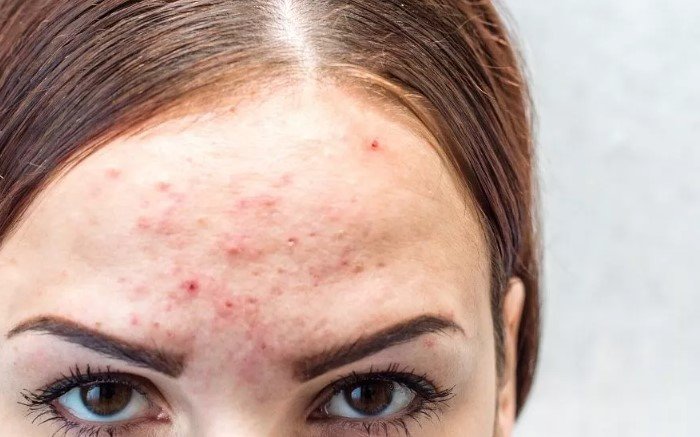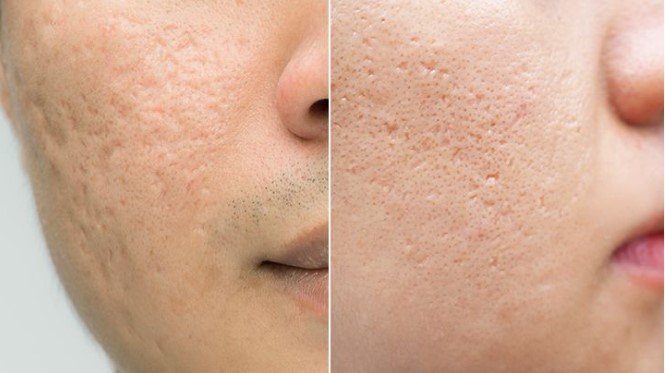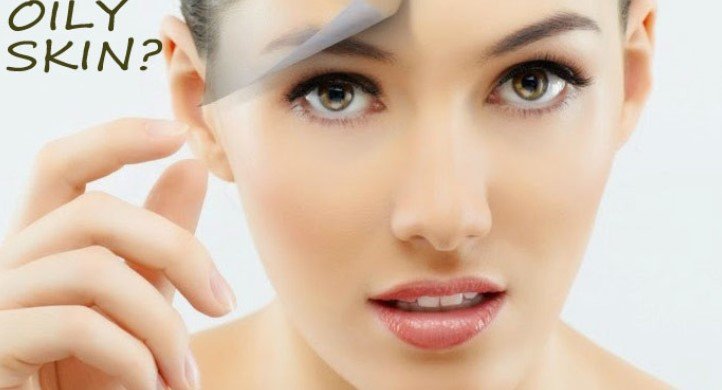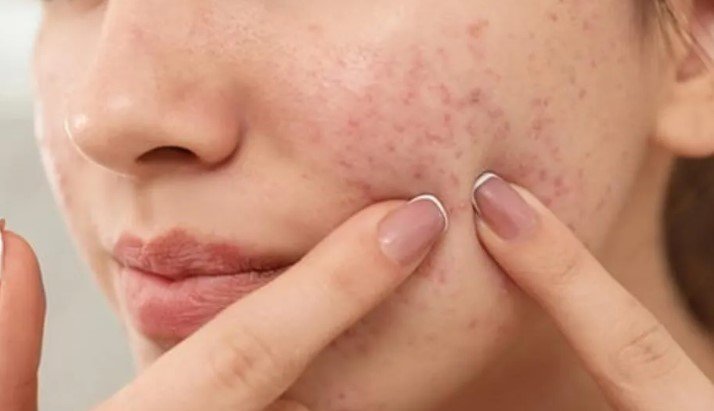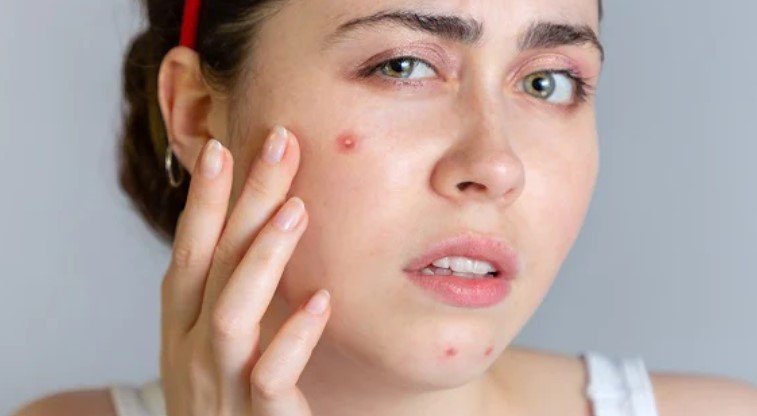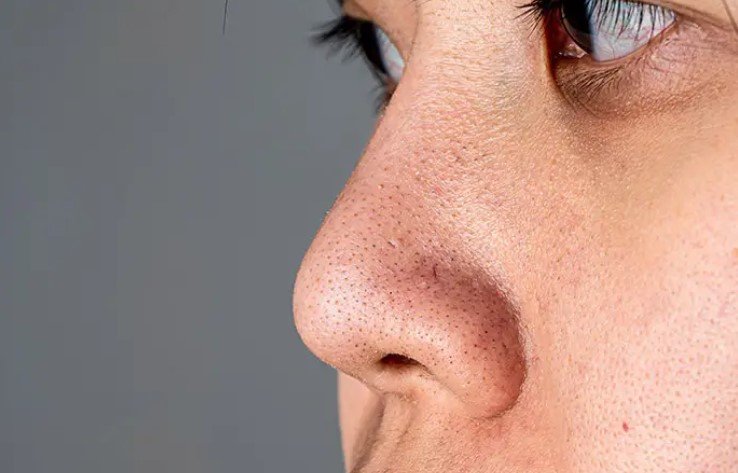10 Different Causes Of Adult Pimples On Face
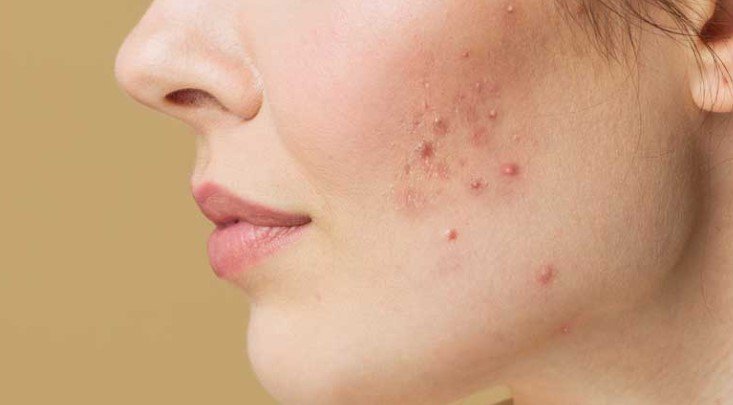
Adult pimples are quite similar to teenage pimples but they mostly grow to the chin and jawline and sometimes can appear on any part of the face. An adult may have developed clogged pores, inflamed bumps, or sometimes deep cysts which create the spread. Adult pimples are not treated the way dermatologists treat teenage pimples.
Adults develop pimples due to many factors. It can be a hormonal imbalance, menstruation cycle, puberty, or unhygienic care of the skin. A high level of stress, anxiety, menopause, pregnancy, and use of oral contraceptives can be one reason to trigger adult pimples.
What Is An Adult Pimple Condition?
Adult pimples are an inflammatory condition that is among the top 8 most common diseases in the United States and worldwide. However, puberty and the menstruation cycle are more responsible for pimple development due to massive hormonal changes in the body.
Many adults suffer from pimples during their youth for almost 2 decades of time. Pimples mostly occur to the ladies but now it is common amongst the males too. Pimples can be of many types and we're going to discuss it in short.
Mild Pimples
Mild adult pimples can consist of small pustules, whiteheads, and blackheads.
Moderate Adult Pimples
Moderate adult pimples develop when pimples are spread to the affected region and include papules that cover the face.
Severe Adult Pimples
It is the worst situation of pimple growth, which lacks control due to several factors. It involved complete redness on the skin, burning sensation, discoloration, scratches, itching, and deep cysts.
Different Causes Of Pimples On Face In Adults
Pimples can spread on the skin due to a combination of factors, including genetics, hormones, and various external influences. Here's how pimples can spread on the skin:
Sebum Production
Hormonal changes, often occurring during puberty, can lead to an overproduction of sebum.
Bacterial Infection
The bacteria infection called Propionibacterium acnes (P. acnes) naturally survives on the skin. However, when hair follicles become clogged, it creates an environment where P. acnes can multiply. These bacteria can contribute to inflammation and the formation of pimples.
Spread by Touch
Pimples can sometimes be spread by touching or picking at them. This can introduce more bacteria to the area and potentially lead to more pimples. It's essential to avoid touching your face and to practice good hygiene to prevent the spread of bacteria.
Hormonal Changes
Hormonal fluctuations, such as those during the menstrual cycle or due to certain medications, can lead to the development of new pimples and the worsening of existing ones. Hormones play a significant role in sebum production and pimple development.
Cosmetics and Skincare Products
Some cosmetics and skin care products can clog pores and exacerbate acne. Comedogenic products can contribute to the development of pimples, and using these products on acne-prone areas can lead to the spread of pimples.
Diet
While the link between diet and acne is not entirely clear, some people find that certain foods can trigger or worsen the situation. Consuming high-glycemic foods and dairy products may contribute to acne in some individuals.
Friction and Pressure
Pimples can develop or worsen in areas where there is frequent friction or pressure, such as from tight clothing or helmets. This can lead to the spread of pimples in specific regions of the skin.
Genetics
Your genetic makeup can also influence your susceptibility to acne. If your family has a history of acne, you may be more prone to developing it, and it can appear in various areas of your skin.
To prevent the spread of pimples and manage acne, it's essential to maintain good skin care practices, use non-comedogenic products, and consult a dermatologist for personalized treatment options.
Prevention For Causes Of Pimples
There are many methods available for firm control and prevention of adult pimples and we're going to explore them one by one.
A. Take Care Of Your Skin
Regular skin care is essential to maintain hygiene and clear the breakouts from the skin cells. Keeping your skin clean works like a preventive mechanism to control the pimple's development.
B. Moisturized Properly
Most people who are prone to pimples have never followed the moisturizing step. If you keep your skin dry for a long time there are chances that dryness of the skin may exacerbate pimples to propel the breakout chain resulting in the development of the pimples on uncleaned and dry skin.
C. Wear Your cool
Nobody develops pimples in a day. If something on your skin goes wrong, it will not change things overnight. If you've developed pimples on your skin, then you should work effectively and give proper time to cleansing and cleaning habits.
Never try to switch from one anti-pimples cream to another and when you're meeting with your dermatologist putting all the explanations together and the products that you have been using during this period is also necessary.
D. Take Care Of Physical Health
Start developing a good habit if you've not followed it before. Clean your skin hygienic and hydrated all the time while maintaining a balanced diet. Add more green and leafy veggies to your diet and consume more fruits than you can.
E. Avoid Foods
Avoid processed and high-processed food during this period and control your eating appetite. Consuming plenty of water is a must and you can consume it while monitoring yourself. If you consume alcohol or cigarettes, then you should drink only to moderate levels and if possible, stop the consumption of bad habits during the treatment period.
Adult Pimples On Face Notes,
Pimples developed in a teenager are quite different from adult pimples and are easy to eliminate. However, adult pimples take time to recover and they often spread due to lack of care and carelessness of the issues. Adults develop pimples due to their busy schedules and lack of time to cleanse and clean the skin.
They're less likely to hydrate themselves resulting in adult pimple development, which often leads to severe symptoms that should be eliminated at the primary stage. Our editorial team has discussed with plenty of healthcare top-notch professional and prestigious dermatologists available locally and put their outlines on the adult pimple issues.
You can browse our other sections of blogs for more information on blackheads, whiteheads, black marks, pimples, and different types of acne and cures. Happy reading!


